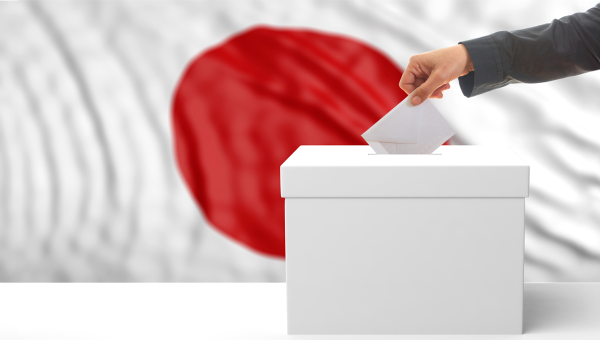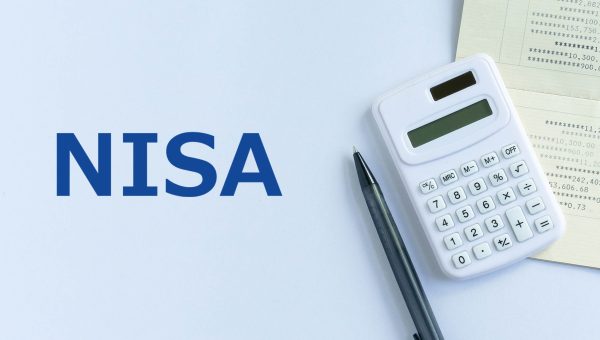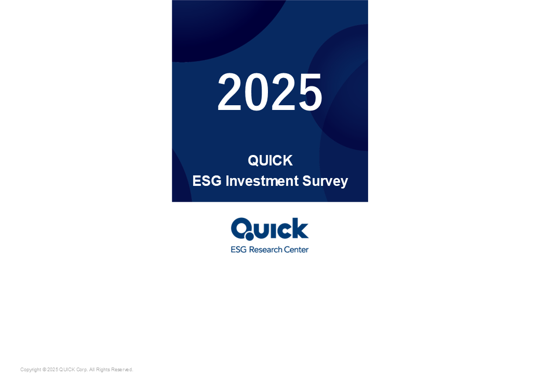Japan Markets ViewITOCHU (8001) Tops ESG Book’s Human Capital Score at the End of February; Shiseido (4901) and Unicharm (8113) Highly Rated for Diversity, etc.
Apr 30, 2025
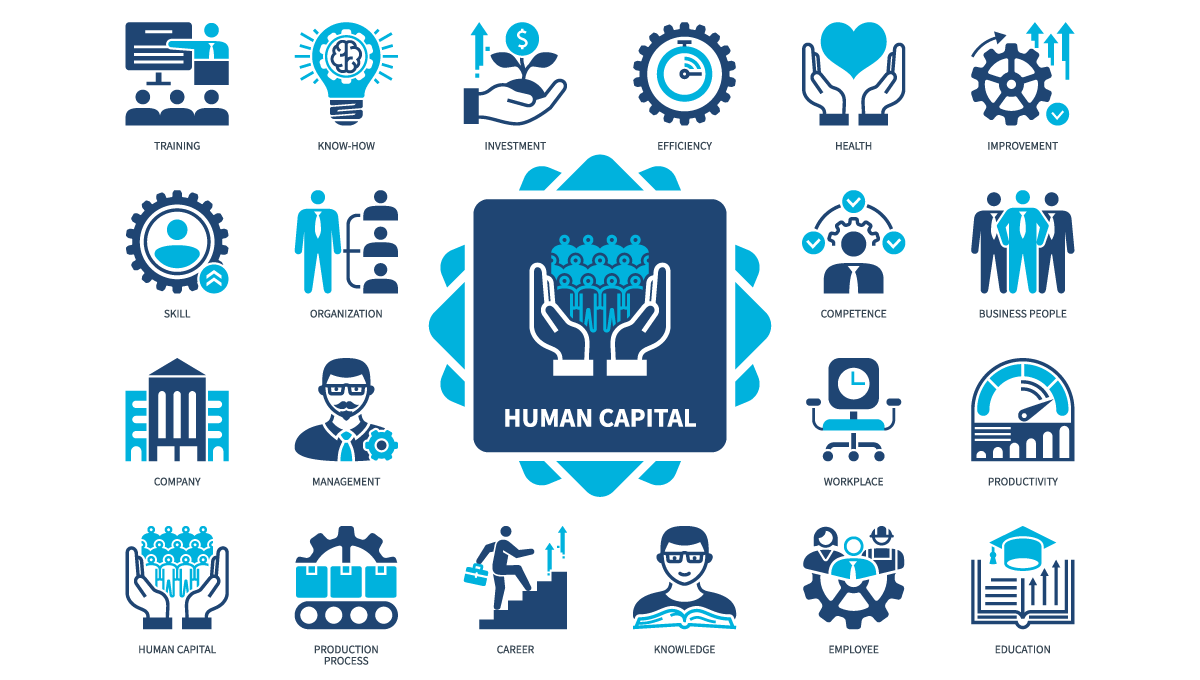
[Taigi Endo, QUICK ESG Research Center] JPX Market Innovation & Research (JPXI) and Nikkei are collaborating to develop a new stock price index focusing on human capital. In this article, I assessed the current status of performance assessment on human capital of listed companies in Japan. The Arabesque Group’s ESG evaluation service “ESG Book” ranked the “Human Capital Score-PLUS” as of February 28, 2025, and ITOCHU topped the list with a score of 89.89.
Table 1: Top 10 Japanese Listed Companies in ESG Book’s Human Capital Score-PLUS (as of February 28, 2025)
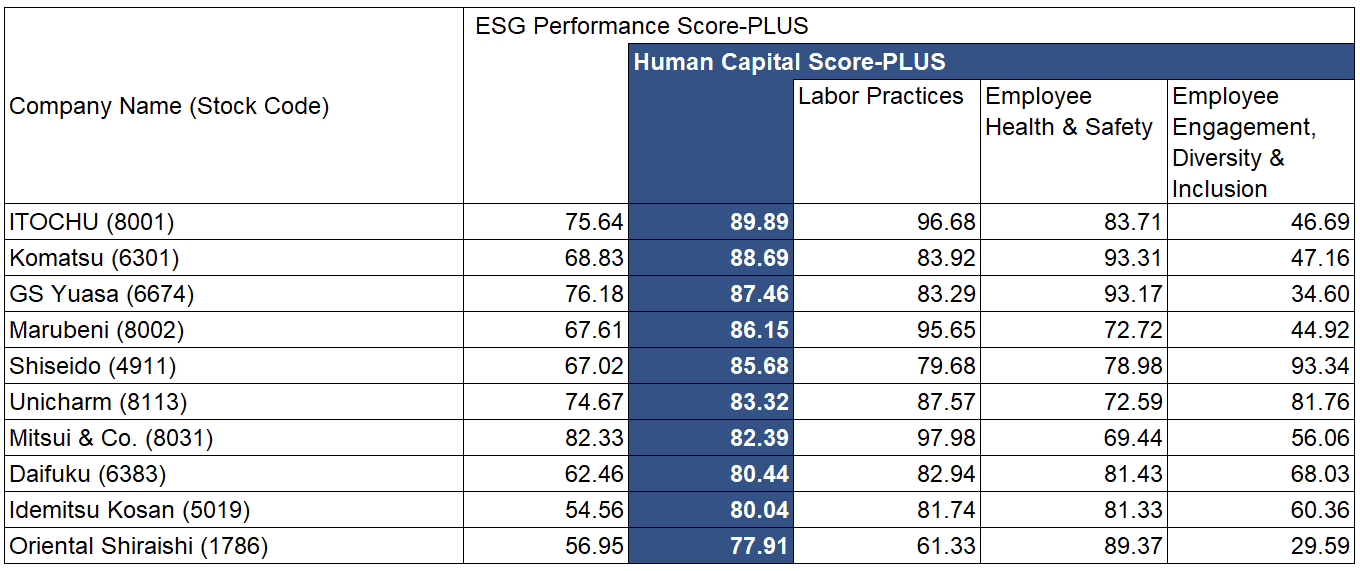
*Compiled by QUICK ESG Research Center using QUICK‘s terminal
JPXI and Nikkei announced on February 5 that the selection of constituent stocks for the new index will be based on the global evaluation standards of the Sustainability Accounting Standards Board (SASB), and will also incorporate indicators unique to Japan. Since the ESG Book calculates the “ESG Performance Score” based on the SASB standards, I examined the scores for the dimension and categories that comprise it.
The ESG Performance Score is calculated by evaluating the five dimensions and the 26 categories that comprise them. One of the five dimensions is “Human Capital.” It consists of three categories: “Labor Practices,” “Employee Health & Safety,” and “Employee Engagement, Diversity & Inclusion.”
In addition to the “ESG Performance Score,” the ESG Book calculates scores for each dimension and category on a daily basis. All are scored on a 100-point scale, with higher scores indicating excellence. The scores are divided into “CORE” and “PLUS.” The “PLUS” score reflects a company’s public information as well as media news about the company and information from non-governmental organizations (NGOs) and other sources. All “PLUS” scores are discussed here.
In the Human Capital Score-PLUS ranking of about 980 listed companies in Japan (as of February 28), ITOCHU ranked first, followed by Komatsu (6301) in second and GS Yuasa (6674) in third. In addition to ITOCHU, general trading companies stood out, with Marubeni (8002) in fourth place and Mitsui & Co. (8031) in seventh place.
Of the top 10 companies, Mitsui & Co. has published its Human Capital Report 2024 and obtained the certification of ISO30414, a set of guidelines for quantifying, analyzing, and disclosing human capital-related information by the International Organization for Standardization (ISO). In addition, the majority of the companies are members of the Human Capital Management Consortium, which aims to practice and disclose human capital management.
Table 2: Top 10 Japanese Listed Companies in ESG Book’s Labor Practices Score-PLUS (as of February 28, 2025)
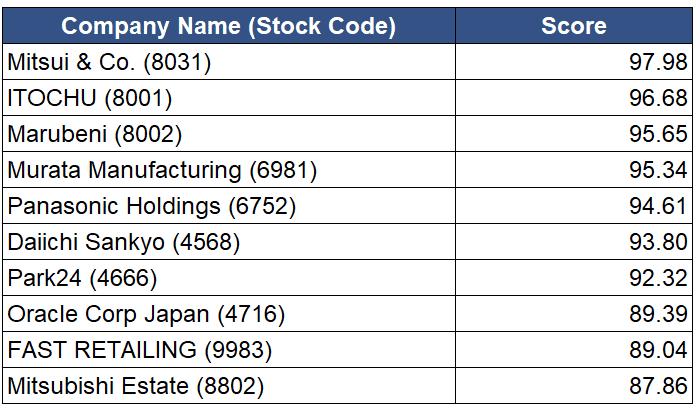
*Compiled by QUICK ESG Research Center using QUICK‘s terminal
Looking at each category of the three general trading companies, in the Labor Practices Score-PLUS, Mitsui & Co. ranked first, followed by ITOCHU in second, and Marubeni in third. On the other hand, in the Employee Engagement, Diversity & Inclusion Score-PLUS, Mitsui & Co. scored 56.06 points, above the 50-point mark, while ITOCHU and Marubeni were only in the 40-point range.
Table 3: Top 10 Japanese Listed Companies in ESG Book’s Employee Health & Safety Score-PLUS (as of February 28, 2025)
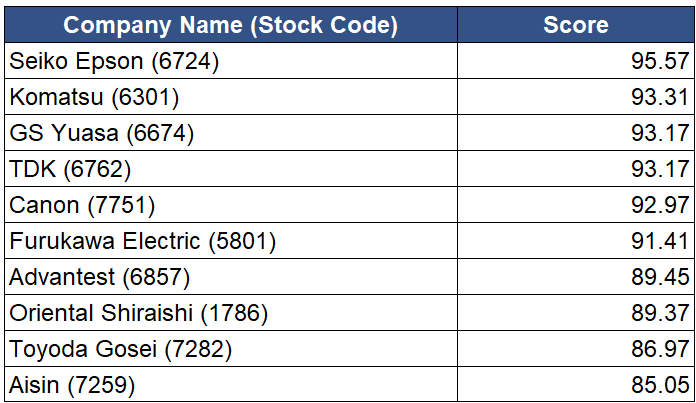
*Compiled by QUICK ESG Research Center using QUICK‘s terminal
Komatsu and GS Yuasa, which ranked second and third in Human Capital, also placed second and third, respectively, in the Employee Health & Safety Score-PLUS. The top-ranked company in this category was Seiko Epson (6724).
Table 4: Top 10 Japanese Listed Companies in ESG Book’s Employee Engagement, Diversity & Inclusions Score-PLUS (as of February 28, 2025)

*Compiled by QUICK ESG Research Center using QUICK‘s terminal
Shiseido and Unicharm, ranked fifth and sixth in Human Capital, were first and fourth, respectively, in the Employee Engagement, Diversity & Inclusion Score-PLUS. Both companies scored over 70 points and, on balance, excelled in all three categories. I looked at the sustainability of both companies on their websites.
Shiseido has set strategic actions and targets in the environmental and social areas. One of the strategic actions in the social area is “Advancing gender equality,” with the target of achieving a 50% ratio of female leaders at all levels in Japan by 2030. The company discloses this target along with actual results for 2023, broken down for directors, executive officers, and managers in Japan.
Unicharm has set forth fair and transparent corporate management (Unicharm Principles) in its “Medium- to Long-term ESG Goals.” The company is working on themes such as “promotion of diversity management,” “Fostering development of competent human resources,” and “Construction of healthier workplaces and workplace safety systems.” The company discloses its targets for 2030 and actual results for the past three years as indicators for each theme: the ratio of female employees in management positions, the ratio of positive responses to the question about the sense of “Growth Through Work” in the in-house awareness survey, and the reduction ratio of employees taking leave due to mental or physical illness.
According to the Ministry of Economy, Trade and Industry (METI), human capital management is a management approach, which will lead to medium- to long-term improvement of corporate value by looking at human resources as “capital” and maximizing their value (from METI website). I would like to pay close attention to the new stock price index to be launched in the middle of this year in order to see if companies with excellent human capital will be highly valued in the stock market.
(Reported on March 17)
Related dataset
QUICK ESG Data:
https://corporate.quick.co.jp/data-factory/en/product/data050/
Discover datasets unique to the Japanese equity market:
Visit QUICK Data Factory:
https://corporate.quick.co.jp/data-factory/en/


